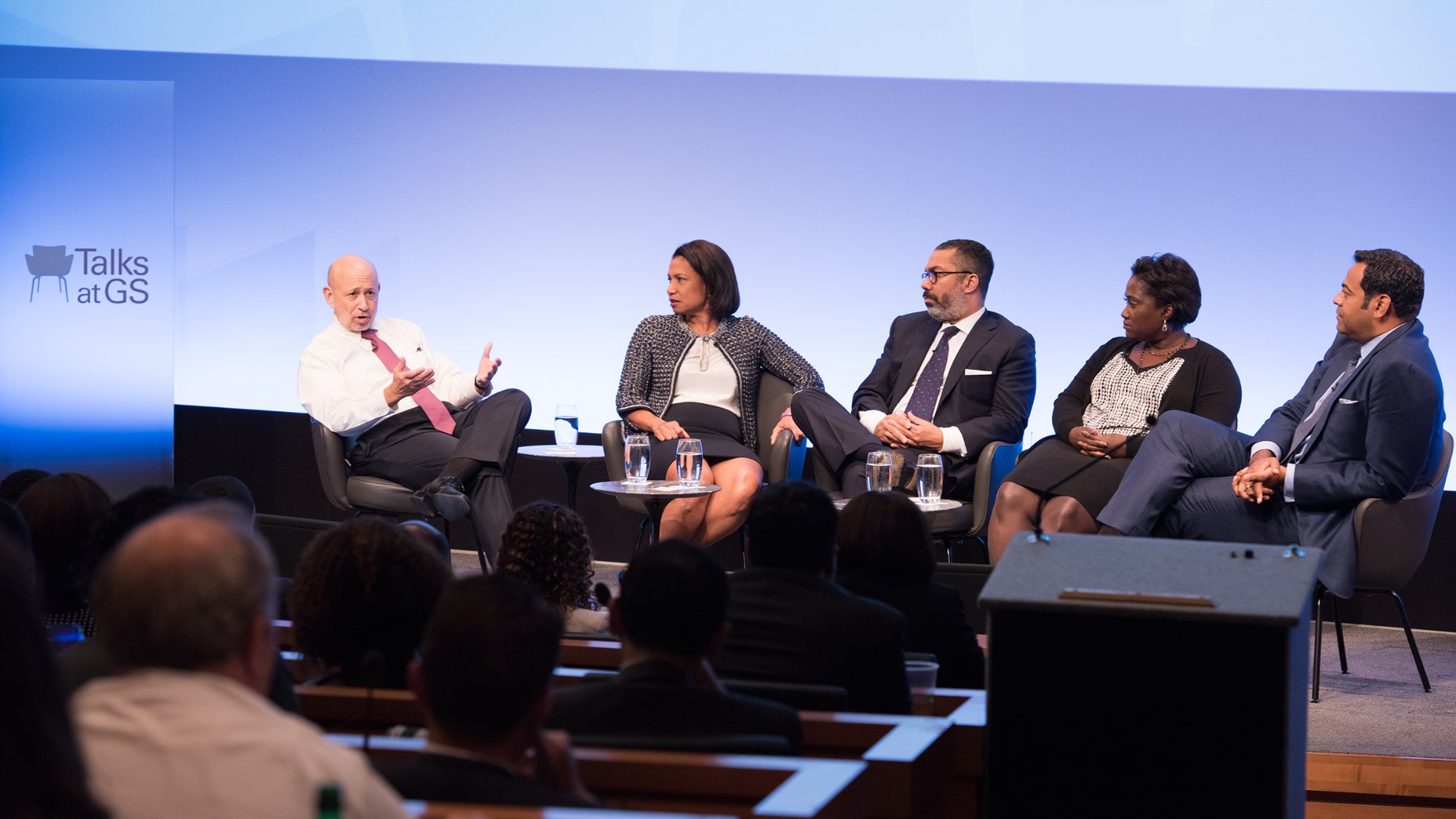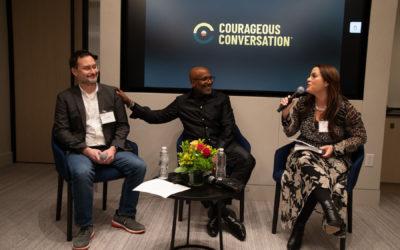By Laura Lorenzetti Soper—Oct. 19, 2016
Edith Cooper has spent over 20 years at Goldman Sachs, growing from the energy-trading division to become the global head of human capital management. She’s the hiring gatekeeper for the investment bank — and part of the heart and soul of Goldman’s culture. When she speaks, it trickles down and well beyond the firm’s global offices.
That makes her recent discussion about race in the workplace even more powerful. She’s a black woman, raised by parents who grew up in the segregated South, who has become a partner and executive vice president at arguably one of the most powerful and respected companies on Wall Street. She knows success. She also knows what it feels like to be mistaken for the coat check at her son’s school and being asked to serve coffee at a client meeting she came to run.
“I shared my experiences with the hope that people would take threads of my experience, find relevance to theirs and empower themselves,” Cooper told LinkedIn. “The conversations that I was having with people of color, and quite frankly with people who are not black, really proved and showed to me that this was a topic that wasn’t just something that people were struggling with in their personal lives — because what is the difference? Your beliefs as a human being really don’t end when you come to work.”
As more and more incidents of police violence against black men and women flash across our screens, the effects have penetrated well beyond the confines of our personal lives and into the workplace. Fortune 500 companies, led by the likes of Goldman Sachs and others like Morgan Stanley, Accenture and Nike, are opening up difficult conversations about race, culture and belonging. These workplaces have recognized, like Cooper says, that we bring our whole selves into the workplace each day. They are opening up compassionate conversations around inclusion and diversity with the intention of creating an environment where every employee can thrive.
“We know this about people, they aren’t really separating their identity and their personal lives from work,” said Cooper. “They want to know that who they are and what they believe in can be the same when the come to the workplace.”
Read more at LinkedIn Pulse.




